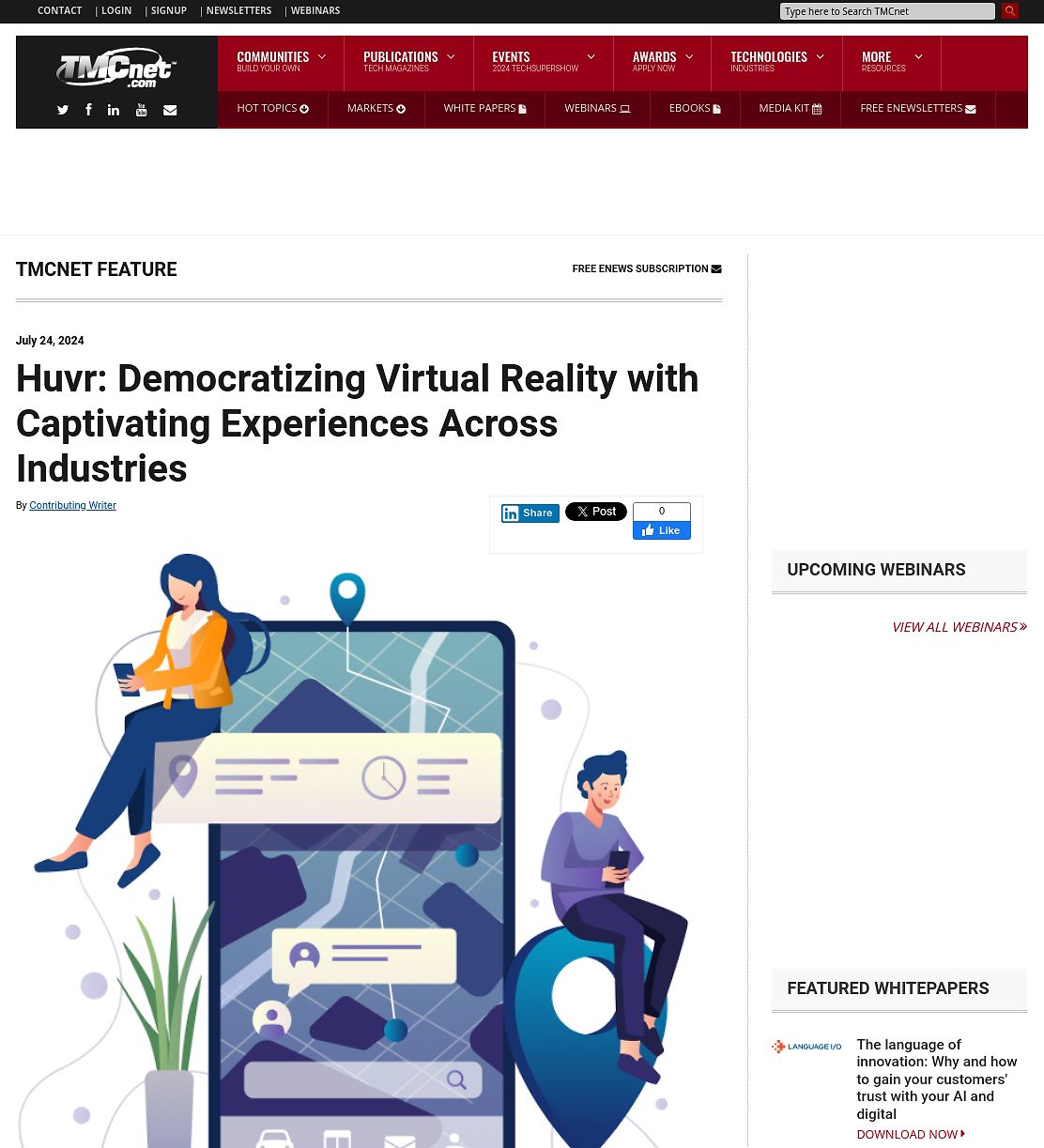Virtual reality (VR) has evolved from a niche technology into a mainstream phenomenon, captivating millions with its ability to transport users to immersive digital worlds. Today, virtual travel is more accessible than ever because the passport to a new world no longer needs to involve expensive hardware, like high-resolution VR headsets, hand controllers, and sensory devices.
Leading this paradigm shift is an innovative company called Huvr — which stands for “human virtual reality” — a pioneering platform dedicated to democratizing VR, making immersive experiences accessible and impactful across various industries. Through the Huvr platform, virtual travelers can explore over 50 countries in real time.
“When it comes to virtual travel and immersive experiences, some choose to spend a lot of money on equipment,” says Herman DeBoard, CEO of Huvr. “We choose to make the experience as inclusive as possible by connecting through something almost anyone already has in their pocket: a mobile device.”
How Huvr is breaking down barriers in virtual travel
DeBoard, a decorated veteran of the US Air Force, created Huvr in 2019. His spark of inspiration came while watching Jake Sully, a paralyzed former Marine, use a pod to launch into another world during the original “Avatar.”
“Our app is similar to Uber,” says DeBoard, “but rather than connecting riders to drivers, we connect virtual travelers to human walkers. To travel with Huvr, all you need to do is log onto the app, select one of our walkers in an area you want to explore, and hire them. In seconds, you virtually teleport to the site by seeing what the walker sees and hearing what they hear through your device.”


